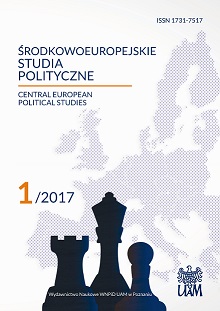Fantazmat Julii Brystiger
Julia Brystiger’s Phantasm
Author(s): Piotr ForeckiSubject(s): Social Philosophy, History of Communism, History of Antisemitism, Politics of History/Memory
Published by: Uniwersytet Adama Mickiewicza
Keywords: Antisemitism; ‘Kike Communism’; phantasm; stereotype; myth; discourse; film; communism; Julia Brystiger;
Summary/Abstract: The ‘Kike Communism’ cliché holds a special position in Polish antisemitic discourse, where it has different functions. Having been replicated over time, it has been reinforced and become a social platitude, a matrix of popular thinking about history, a descriptive category applied by journalist and academic discourses and a keyword in discussions on Polish-Jewish relations. “Kike Communism” is a cultural topos and a condensation of meanings and interpretations that have been adopted and familiarized so well that it is difficult to see, let alone undermine its roots. Apart from the narration about the harm suffered by Polish patriots at the hands of Jewish Communist torturers the names of those torturers hold an important place in the structure of this topos. It is actually difficult to imagine its content without the symbolic figures such as Jakub Berman, Anatol Fejgin, Roman Romkowski, Stefan Michnik, Helena Wolińska-Brus, Julia Brystiger and Józef Różański. For years they have played the iconic roles assigned to them in the Polish antisemitic discourse. Julia Brystiger, or rather her mythologized image, deserves particular attention in this group. Nicknamed ‘Bloody Luna’ she surely is among the most demonized female Communists in Poland. The objective of the considerations in this paper is to try to demonstrate the construction of the phantasm surrounding her on the basis of a thorough analysis of different texts in Polish culture, ranging from literature to film.
Journal: Środkowoeuropejskie Studia Polityczne
- Issue Year: 2017
- Issue No: 1
- Page Range: 47-69
- Page Count: 23
- Language: Polish

